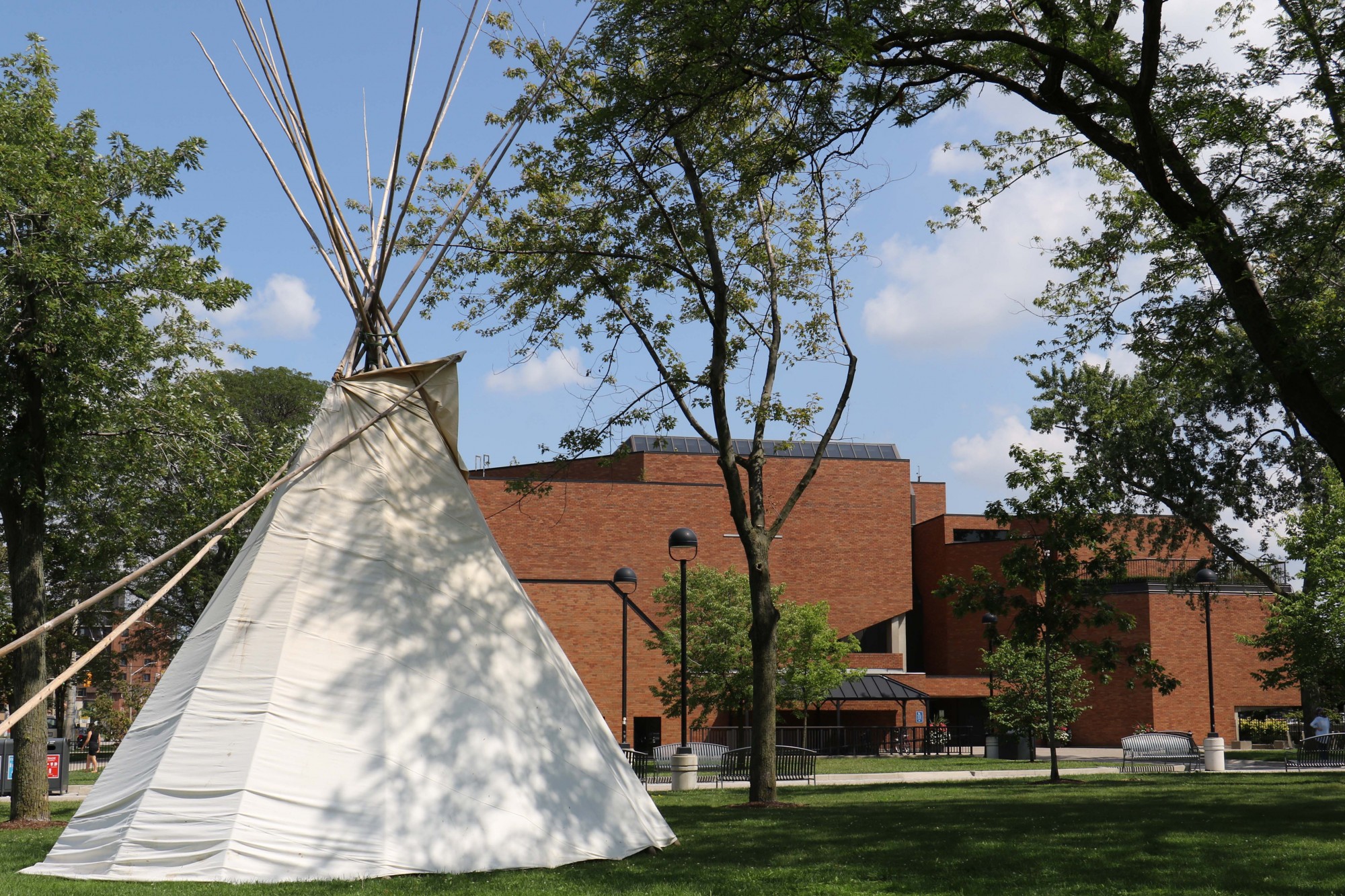
Incoming Windsor Law students now have a new course to expand their legal education. Starting this fall, first-year students will be required to take an intensive Indigenous Legal Traditions course to fulfill the Juris Doctor (JD) requirements.
The course is designed to examine and engage with Indigenous legal orders, in particular, Anishinaabe, Cree and Haudenosaunee laws.
The Faculty of Law is home to over 30 leading legal scholars, including Indigenous scholars Valarie Waboose (former General Counsel to Walpole Island First Nation and an expert on the residential schools’ legacy), Jeffery Hewitt (former Indigenous Bar Association President and General Counsel for the Rama First Nation) and Beverly Jacobs(former President of the Native Women’s Association of Canada, lead consultant and researcher of Amnesty’s “Stolen Sisters” Report and member of the Order of Canada).
The knowledge of our Indigenous faculty members has allowed Windsor Law to offer a range of courses related to Indigenous peoples, indigenize the curriculum material and improve the experience for Indigenous students. In addition, their diverse backgrounds allow for teaching of comparative Indigenous Law drawing from legal traditions of the Anishinaabe, Cree, and Haudenosaunee peoples.
Windsor Law is pleased to welcome Gloria Thomas and Bryan Loucks who will be joining the team as sessional instructors to assist in teaching Indigenous Legal Traditions as well as Sylvia McAdam who will be joining the Faculty as a Law Foundation of Ontario Scholar for a one-year appointment.
McAdam, a lawyer, professor and advocate for First Nations and Environmental Rights, is the co-founder of Idle No More, an international grassroots movement that emerged as an effort to protect the land and water from looming parliamentary bills that would complicate Indigenous sovereignty and environmental protections. The movement has changed the political landscape of Canada and her efforts have been recognized with several awards including the Carole Gellar Human Rights Award, Foreign Policy Top 100 Global Thinkers 2014, Social Justice Award, and 2014 Global Citizen Award.
"In an era of Truth and Reconciliation as well as "Nation to Nation" dialogue, Indigenous peoples are rebuilding their nationhood and dismantling colonialism,” said McAdam. “Nêhiyaw (Cree) laws and other Indigenous laws are the foundation to rebuilding and it's an exciting time to rebuild and revitalize inherent original instructions. "
McAdam believes Indigenous Legal Traditions willprovide an insight into the various and diverse laws that continue to exist in what is now referred to as "Canada".
Windsor Law joins law schools across Canada who have implemented Indigenous courses and content to the curriculum following the recommendations put forth in 2015 by the Truth and Reconciliation Commission, specifically Call to Action #28 that called upon Canadian law schools to require all law students to take a course in Aboriginal people and the law.
"A big part of that commitment is bringing nation-nation relationships into our curriculum,” said Windsor Law Dean Christopher Waters. “That starts with learning Indigenous legal traditions on their own terms."
Windsor Law, which sits on the traditional territory of the Three Fires Confederacy, comprised of the Ojibway, the Odawa, and the Potawatomi, has a strong commitment to enhance Indigenous voices and scholarship in the Windsor community and within the legal profession.
Windsor Law in partnership with Sunchild Law will host the fourth biennial World Indigenous Law Conference on November 18 – 21st, 2018, which includes an opening-day PowWow and Haudenosaunee Social. The title and theme of the conference is: “Wawiiatanong Ziibi: Where the River Bends, The Application of Indigenous Laws in Indigenous Communities and in the Courts,” and will be held on Windsor’s river waterfront at the St. Clair Centre for the Arts located between Windsor, ON and Detroit, MI.
The purpose of the 2018 World Indigenous Law Conference is to bring together lawyers, judges, academics, Knowledge Keepers, policy experts, community leadership, community advocates, students and all interested parties to embark on and share in conversation and discourse about the implementation of Indigenous Law into western contemporary legal systems and highlighting Indigenous Laws that already exist in Indigenous communities and Nations.
In addition to learning about Indigenous culture and legal traditions in the classroom, students, faculty and staff are able to participate in an Anishinaabe Law camp hosted on Walpole Island First Nation to learn about in Indigenous law from experts, local elders and residential school survivors. They also learn from the Faculty’s Elder in Residence, Myrna Kicknosway, who visits the school once a month.
